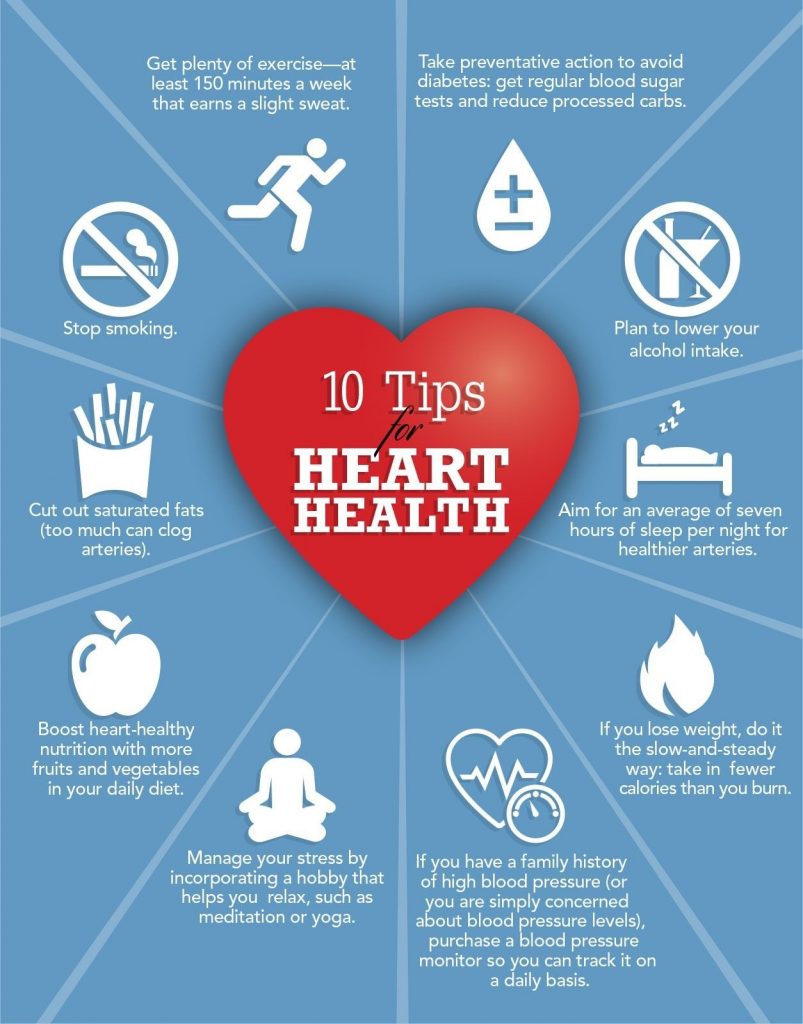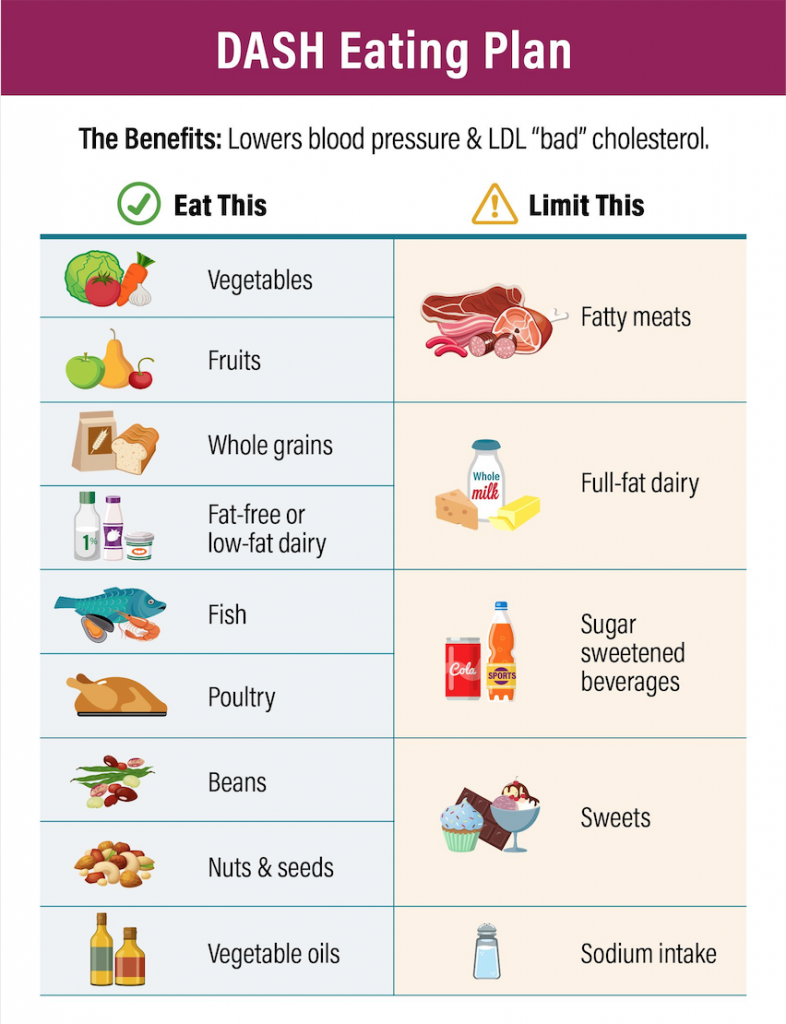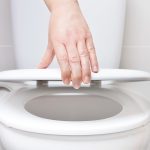
Hypertension or high blood pressure blocks countless people from their daily lifestyle. Directly or indirectly, it is responsible for countless ailments- both cardiac and other related diseases.[1]
Almost 1.13 billion people are suffering from a high blood pressure world – approximately 1 in 7 people. However, the repercussions are dangerous. Act before it’s too late.
Effects of High Blood Pressure on the Human Body
Narrow arteries cause higher blood pressure, which will eventually put your heart at great risk. Without proper medication and attention, it leads to various health issues, including heart attack and stroke.
High BP silently degrades the human heart for a prolonged period before symptoms start to show. Here is how it can affect you.[2]
- Narrow and inelastic arteries due to coagulation of fat
- Aneurysm, resulting from enlarged artery walls
- Coronary artery diseases like angina, arrhythmia, or heart attack
- An enlarged heart due to the thickening of the left ventricle
- Heart failure due to the weakening of cardiac muscles
- Brain damage- including stroke, transient ischemic attack(TIA), dementia, and Mild Cognitive Impairment (MIR)
- Kidney scarring (glomerulosclerosis) and kidney failure
- Retinal damage (Retinopathy), fluid buildup (Choroidopathy), nerve damage in the eye (Optic Neuropathy)
- Sexual and erectile dysfunctions
Steps to Lower Blood Pressure
Neglecting hypertension is a foolish step. Consult with your physician for the proper medication.[3]
In addition to the medicines, you can try out these steps known for reducing blood pressure.
· Develop a Healthy Eating Habit
A healthy diet is the integral first step toward fitness. Healthy food reduces high blood pressure. Also, it helps to resolve other health issues.[4]
Add these items to your daily regimen:
- Green Vegetables
- Fruits
- Whole Grains
- Lean proteins like fish
- High calcium foods
Start avoiding these items:
- Caffeine
- Carbohydrates
- Processed foods (contains unsaturated fats and added sugar)
- Salt
The Dietary Approaches to Stop Hypertension or DASH has been designed to focus on decreasing your blood pressure with minimal medication. Try to match up your dietary preferences with it.[5]
· Reduce your body weight
Researchers found that obese people are prone to suffer from hypertension. Losing some weight will help you to decrease your blood pressure. Getting fit will also help you to overcome sleep apnea and other related sleeping disorders. A combination of regular exercise and a healthy diet will assist you in achieving your goal.
Losing weight also results in better overall body functions, plus an improved self-image.

· Workout Diligently
Exercise is essential for staying healthy—regular exercise aids in detox, i.e., removal of toxins from the body.
Detoxification reduces high blood pressure and eliminates salt from your body. The salt also helps you to lose weight. Workout at least half an hour every day and observe the amazing results on your health.[6]
You do not need to go to the gym for hours; it means putting your body in physical activities. Jogging, dancing, swimming- any physical activity will work as long as you are burning calories.
· Manage stress effectively
Competitive workspaces can take a toll both mentally and physically. Tense situations result in the release of stress hormones like cortisol. Cortisol increases your blood pressure.
Lower your stress levels. Try yoga, meditation, and tai chi. These mental/physical exercises help in stress removal while boosting your energy levels by releasing melatonin, serotonin, and other hormones.
Spend time with your family. Restarting your long lost hobby can also be beneficial. Listen to meditative stress release music. Just so you know, music therapy is an actual thing.[7]
- Determine your priorities and divide your schedule accordingly.
- Share your workload with a co-worker if the burden is too much.
- Avoid tense situations and people, if possible.
- Take a break from your professional life, if necessary.
- Allot a specific ‘me’ time in your everyday schedule to de-stress.
· Quit Smoking & Drinking
Smoking has a huge impact on your heart. Nicotine reduces the oxygen-carrying capacity of our blood by as much as 90%. It is also responsible for the contraction of blood vessels- reducing blood flow and putting an excessive amount of pressure on the heart.[8]
Having three glasses (or above) of alcohol increases your blood pressure at an unhealthy level. Prolonged drinking leads you to long-term hypertension, depression, and alcohol dependence.[9]
Consult with your doctor if you find it too difficult to let go. Quitting smoking and drinking makes a huge difference in your overall health. It improves sleep patterns, mood swings, fatigue, and is probably the best upgrade for your whole health system.[10]
· Take Proper Medications
Long term hypertension cannot be cured by changing lifestyles and adapting healthy habits only. Sometimes it takes the proper course of medication and medical advice. Consulting doctors and having prescribed medicines without any gap can normalize your blood pressure in a short time.
· Sleep at least 7-8 hours a day
Your body and mind require a certain amount of sleep for optimal functioning. During sleep, all voluntary functions cease, resulting in recharging of your body cells. A healthy body requires at least 7 to 8 hours of daily sleep- more if extensive physical activities are involved.
Sleep deprivation results in mood swings, stress, and unnecessary anxiety- all of which can increase high blood pressure gradually. Stress is also responsible for a nervous breakdown, resulting in high blood pressure.[11]
· Take Vitamins and Supplements
Opt for some supplements after confirmation from a medical expert. Research has shown them to be particularly beneficial against hypertension.
- Folic Acid: Regular doses of folic acid can reduce blood pressure. It is also needed by pregnant women for overall well-being and growth of the fetus.
- Vitamin D: Vitamin D helps to increase the rennin enzyme, which in turn decreases high blood pressure. Rich sources of Vitamin include fish, dairy products, or direct sunlight. Vitamin D supplements are easily available online and at pharmacies as well.
- Potassium: Potassium is necessary for sodium removal through urine. The potassium content is high in fruits like banana and vegetables like potatoes, artichoke, tomato, spinach, mushrooms. Regular and daily consumption (3,400 mg per day for men and 2,600 mg per day for women) can make a noticeable reduction in high blood pressure.
- Vitamin C: Vitamin C has antioxidants that protect the linings of your blood vessels. Orange, broccoli, Brussels sprouts are rich in vitamin C. Regular intake of vitamin C can help reduce your high blood pressure, in addition to boosting overall immunity.
Making a few lifestyle changes can help you lead a better life. You don’t need to wait to start the change – you can start today![12]
[1] https://www.ncbi.nlm.nih.gov/pmc/articles/PMC4366416/
[2] Krousel-Wood MA, Muntner P, He J, Whelton PK. Primary prevention of essential hypertension. Med Clin North Am. 2004;88(1):223–38. [PubMed] [Google Scholar]
[3] https://www.ncbi.nlm.nih.gov/pmc/articles/PMC6481176/
[4] Myers VH, Champagne CM. Nutritional effects on blood pressure. Curr Opin Lipidol. 2007;18(1):20–4. doi: 10.1097/MOL.0b013e328012d911. [PubMed] [CrossRef] [Google Scholar]
[5] He J, Whelton PK. Effect of dietary fiber and protein intake on blood pressure: a review of epidemiologic evidence. Clin Exp Hypertens. 1999;21(5–6):785–96. [PubMed] [Google Scholar]
[6] https://www.ncbi.nlm.nih.gov/pmc/articles/PMC5541164/
[7] https://www.ncbi.nlm.nih.gov/pmc/articles/PMC4717885/
[8] Cabo J, Alonso R, Mata P. Omega-3 fatty acids and blood pressure. Br J Nutr. 2012;107 (Suppl 2):S195–200. doi: 10.1017/S0007114512001584. [PubMed] [CrossRef] [Google Scholar]
[9] https://www.ncbi.nlm.nih.gov/books/NBK482514/
[10] https://www.ncbi.nlm.nih.gov/pmc/articles/PMC6708116/
[11] Morris MC, Sacks F, Rosner B. Does fish oil lower blood pressure? A meta-analysis of controlled trials. Circulation. 1993;88(2):523–33. [PubMed] [Google Scholar]
[12] He J, Bazzano LA. Effects of lifestyle modification on treatment and prevention of hypertension. Curr Opin Nephrol Hypertens. 2000;9(3):267–71. [PubMed] [Google Scholar]

